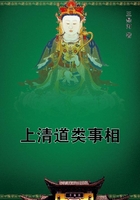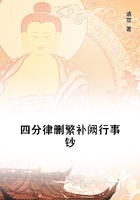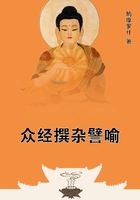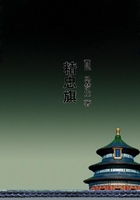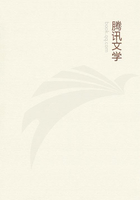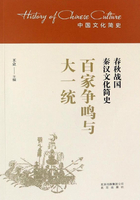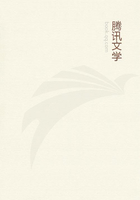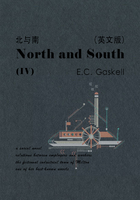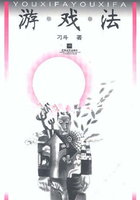There is more than the germ of truth in things erroneous in the child's definition of memory as the thing one forgets with. To be able to forget means sanity. Incessantly to remember, means obsession, lunacy. So the problem I faced in solitary, where incessant remembering strove for possession of me, was the problem of forgetting. When I gamed with flies, or played chess with myself, or talked with my knuckles, I partially forgot. What Idesired was entirely to forget.
There were the boyhood memories of other times and places--the "trailing clouds of glory" of Wordsworth. If a boy had had these memories, were they irretrievably lost when he had grown to manhood?
Could this particular content of his boy brain be utterly eliminated? Or were these memories of other times and places still residual, asleep, immured in solitary in brain cells similarly to the way I was immured in a cell in San Quentin?
Solitary life-prisoners have been known to resurrect and look upon the sun again. Then why could not these other-world memories of the boy resurrect?
But how? In my judgment, by attainment of complete forgetfulness of present and of manhood past.
And again, how? Hypnotism should do it. If by hypnotism the conscious mind were put to sleep, and the subconscious mind awakened, then was the thing accomplished, then would all the dungeon doors of the brain be thrown wide, then would the prisoners emerge into the sunshine.
So I reasoned--with what result you shall learn. But first I must tell how, as a boy, I had had these other-world memories. I had glowed in the clouds of glory I trailed from lives aforetime. Like any boy, I had been haunted by the other beings I had been at other times. This had been during my process of becoming, ere the flux of all that I had ever been had hardened in the mould of the one personality that was to be known by men for a few years as Darrell Standing.
Let me narrate just one incident. It was up in Minnesota on the old farm. I was nearly six years old. A missionary to China, returned to the United States and sent out by the Board of Missions to raise funds from the farmers, spent the night in our house. It was in the kitchen just after supper, as my mother was helping me undress for bed, and the missionary was showing photographs of the Holy Land.
And what I am about to tell you I should long since have forgotten had I not heard my father recite it to wondering listeners so many times during my childhood.
I cried out at sight of one of the photographs and looked at it, first with eagerness, and then with disappointment. It had seemed of a sudden most familiar, in much the same way that my father's barn would have been in a photograph. Then it had seemed altogether strange. But as I continued to look the haunting sense of familiarity came back.
"The Tower of David," the missionary said to my mother.
"No!" I cried with great positiveness.
"You mean that isn't its name?" the missionary asked.
I nodded.
"Then what is its name, my boy?"
"It's name is . . ." I began, then concluded lamely, "I, forget.""It don't look the same now," I went on after a pause. "They've ben fixin' it up awful."Here the missionary handed to my mother another photograph he had sought out.
"I was there myself six months ago, Mrs. Standing." He pointed with his finger. "That is the Jaffa Gate where I walked in and right up to the Tower of David in the back of the picture where my finger is now. The authorities are pretty well agreed on such matters. El Kul'ah, as it was known by--"But here I broke in again, pointing to rubbish piles of ruined masonry on the left edge of the photograph "Over there somewhere," I said. "That name you just spoke was what the Jews called it. But we called it something else. We called it . . . I forget.""Listen to the youngster," my father chuckled. "You'd think he'd ben there."I nodded my head, for in that moment I knew I had been there, though all seemed strangely different. My father laughed the harder, but the missionary thought I was making game of him. He handed me another photograph. It was just a bleak waste of a landscape, barren of trees and vegetation, a shallow canyon with easy-sloping walls of rubble. In the middle distance was a cluster of wretched, flat-roofed hovels.
"Now, my boy, where is that?" the missionary quizzed.
And the name came to me!
"Samaria," I said instantly.
My father clapped his hands with glee, my mother was perplexed at my antic conduct, while the missionary evinced irritation.
"The boy is right," he said. "It is a village in Samaria. I passed through it. That is why I bought it. And it goes to show that the boy has seen similar photographs before."This my father and mother denied.
"But it's different in the picture," I volunteered, while all the time my memory was busy reconstructing the photograph. The general trend of the landscape and the line of the distant hills were the same. The differences I noted aloud and pointed out with my finger.
"The houses was about right here, and there was more trees, lots of trees, and lots of grass, and lots of goats. I can see 'em now, an' two boys drivin' 'em. An' right here is a lot of men walkin' behind one man. An' over there"--I pointed to where I had placed my village--"is a lot of tramps. They ain't got nothin' on exceptin' rags. An' they're sick. Their faces, an' hands, an' legs is all sores.""He's heard the story in church or somewhere--you remember, the healing of the lepers in Luke," the missionary said with a smile of satisfaction. "How many sick tramps are there, my boy?"I had learned to count to a hundred when I was five years old, so Iwent over the group carefully and announced:
"Ten of 'em. They're all wavin' their arms an' yellin' at the other men.""But they don't come near them?" was the query.
I shook my head. "They just stand right there an' keep a-yellin' like they was in trouble."
"Go on," urged the missionary. "What next? What's the man doing in the front of the other crowd you said was walking along?""They've all stopped, an' he's sayin' something to the sick men.

